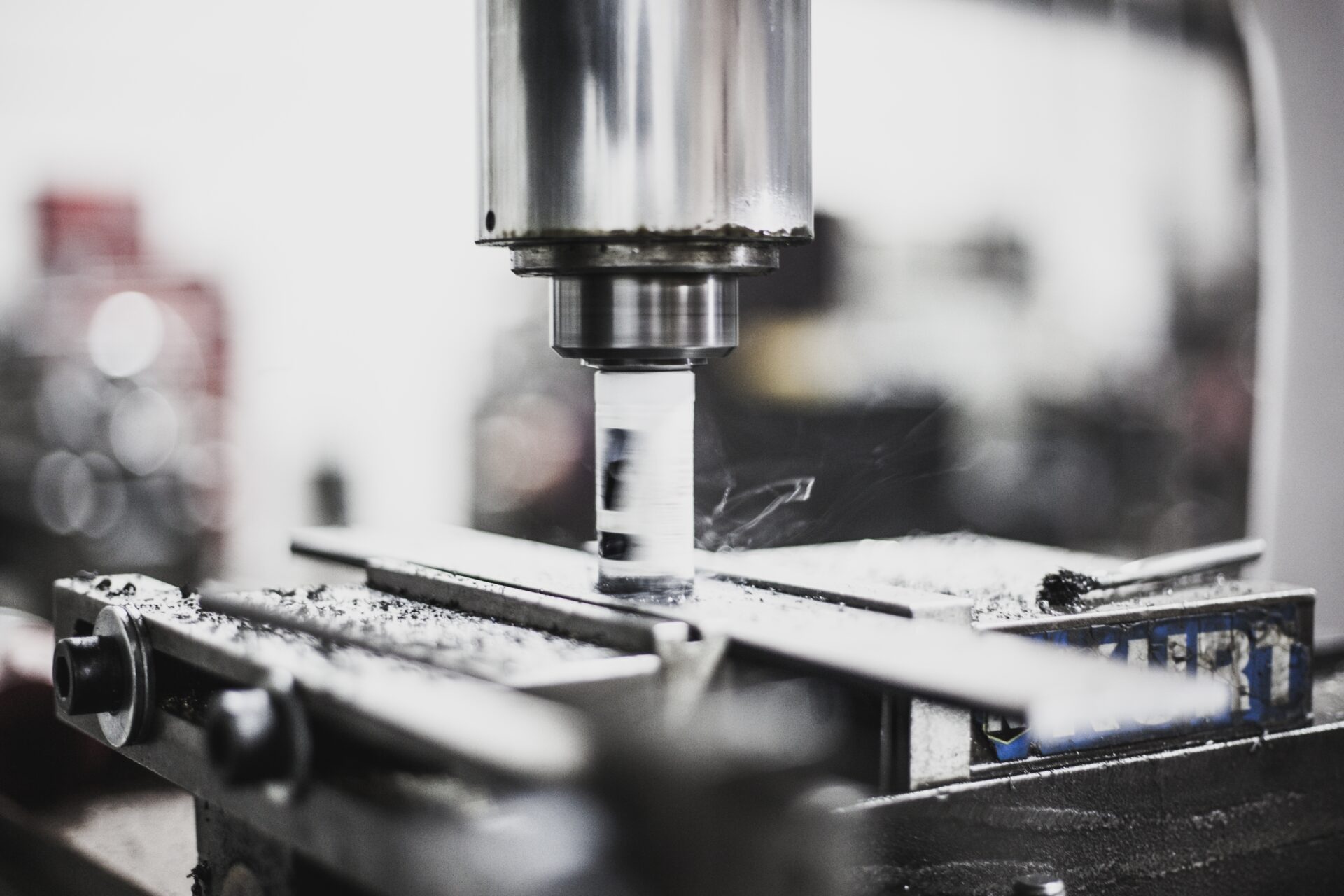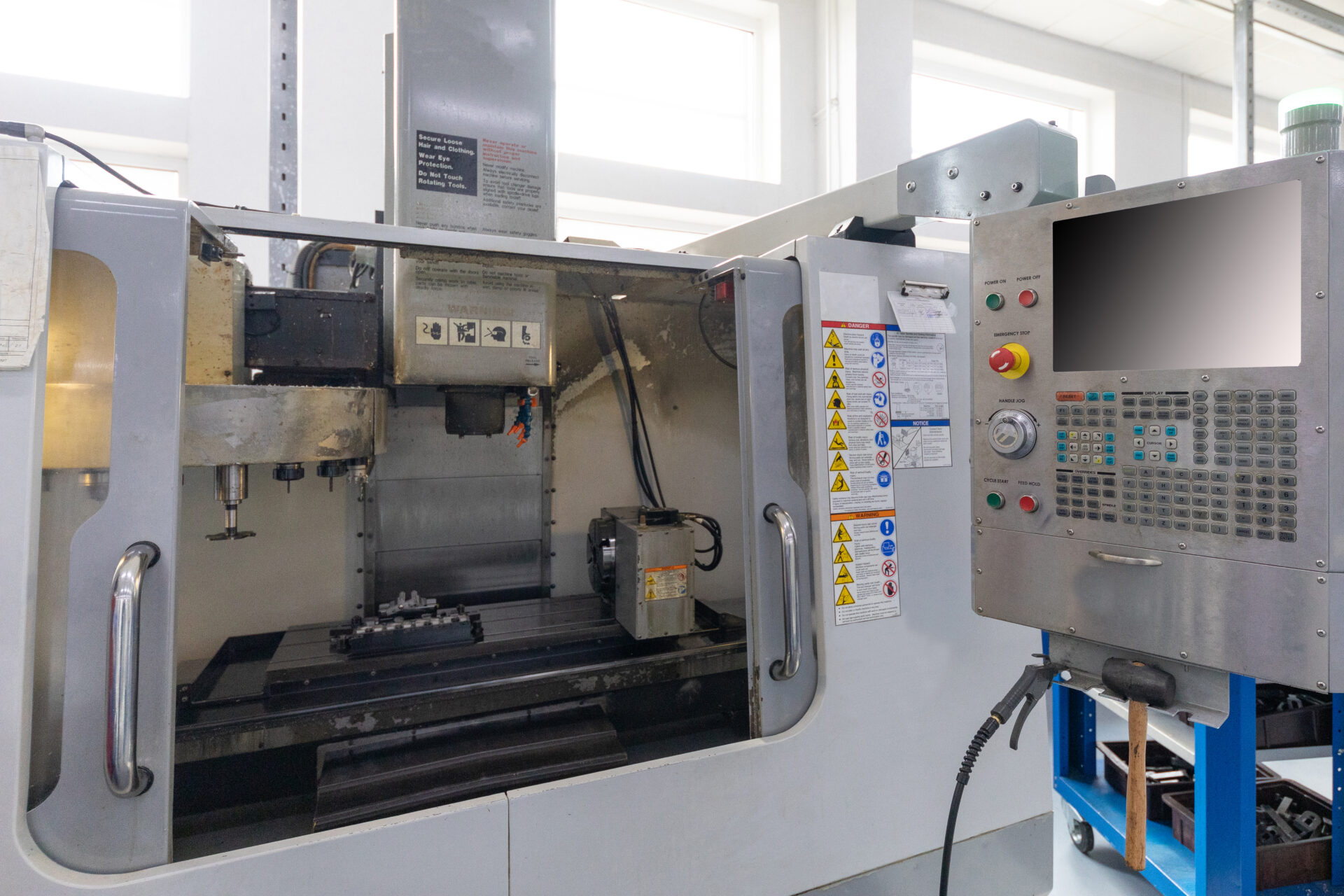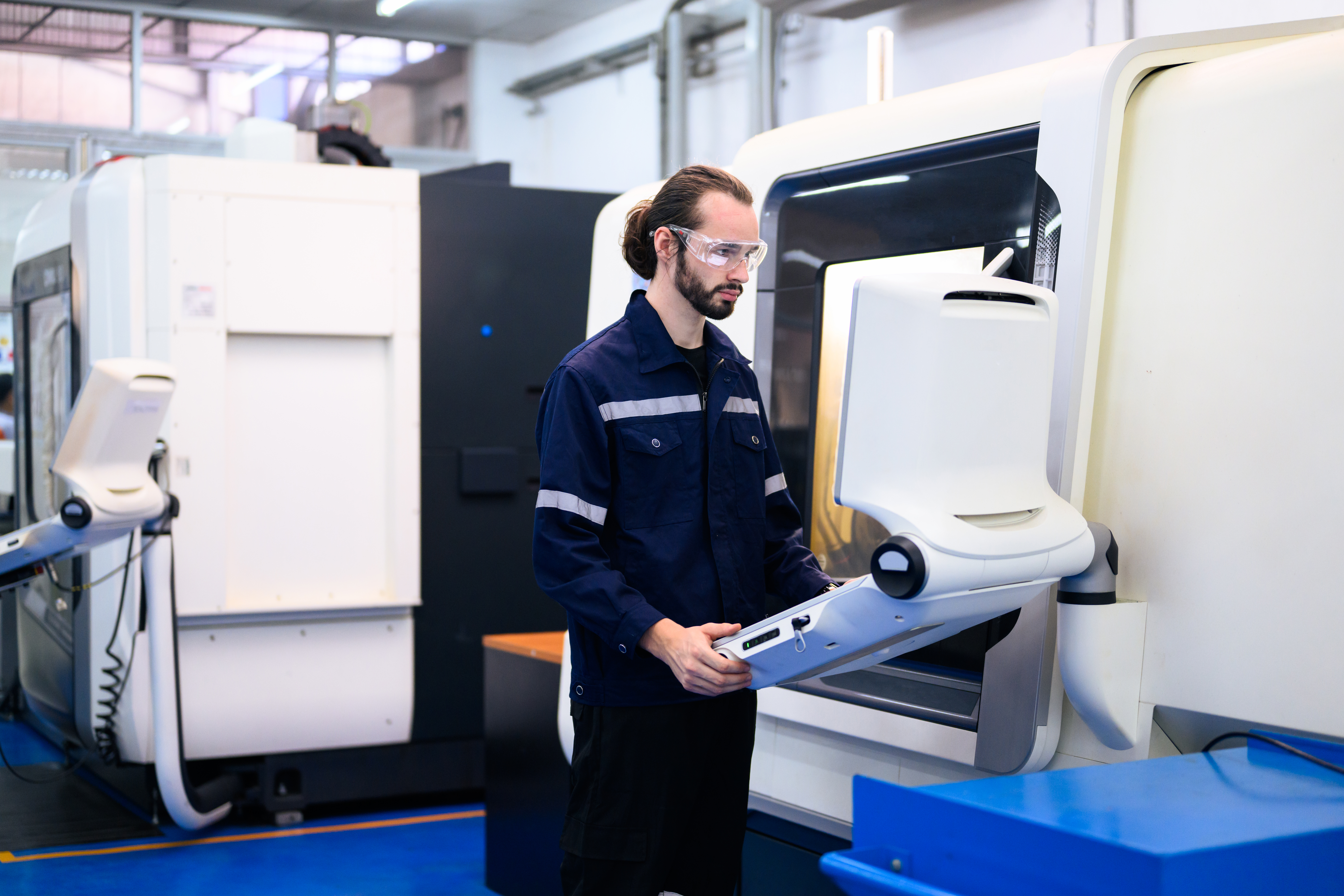In the age of automation and digital production, CNC turning is one of the most important processes used in the mechanical industry. It is distinguished not only by its high accuracy, but also by its repeatability, ensuring that each piece of a component has identical parameters. It is the cornerstone of manufacturing, where precision, safety and process predictability count.
What does the CNC turning process look like in practice?
As opposed to general descriptions, it is useful to look at CNC turning from the point of view of the entire production cycle.
It starts not on the shop floor, but in the technologists„ office. It is there that the 3D model is analysed, from which the CAM programme - the ”instructions' for the machine - is created.
Next:
- The operator prepares the workpiece and tools - clamping must ensure stability at high speeds.
- The machine automatically executes the programme, turning the workpiece and moving the tools in a precisely planned manner.
- A system of sensors monitors temperature, vibration and blade wear.
- A post-processing control measurement verifies compliance with tolerances.
In practice, the whole process can take from a few minutes to several hours - depending on the complexity of the design and the material. But the result is always the same: a detail with perfect geometry.
Precision in every detail - why CNC is second to none
Modern CNC lathes achieve an accuracy of up to a few micrometres, which is crucial in the production of components that need to fit together perfectly. All it takes is a minimal deviation for a shaft to fail to mate with a bearing or a bushing to lose its seal.
In high-volume production, such repeatability means savings - there is no need to modify each part individually and the whole process can be safely automated.
Repeatability - quality assurance in series production
Repeatability is one of the pillars of efficient industrial production. Once a machine has received a correctly programmed model, it can make dozens or hundreds of parts that differ only in their batch number.
In practice, this means:
- reduced quality control time,
- waste reduction,
- the possibility of „lights-out” operation - without the operator being permanently present.
Such solutions are now standard in companies that produce high-precision components, for example for the automotive, hydraulic or engineering industries.
Factors influencing CNC turning accuracy
Precision and repeatability are the result of many coordinated elements:
- Rigidity of the machine-tool-object system - the more stable, the less vibration and the better the surface quality.
- Choice of blade geometry - different angles and coatings affect smoothness and cutting temperature.
- Use of coolant - reduces thermal expansion and extends tool life.
- Calibration and maintenance - even the best machine requires periodic checks of spindle and guide geometry.
All these factors are key to maintaining process stability and reproducible machining results.
New directions in CNC turning technology
Today's turning is no longer just mechanical cutting - it is intelligent data-driven manufacturing.
Today's turning centres are increasingly equipped with:
- predictive monitoring systems - which analyse tool wear in real time,
- vibration and temperature sensors that automatically correct the operating parameters,
- integration with CAD/CAM software, reducing the time between design and product,
- robots that feed the material and receive the workpieces, allowing 24/7 production.
Such solutions are now standard in companies that focus on high productivity and controlled quality - such as Eurotech CNC.
Where precision really matters - examples of CNC turning applications
Instead of general examples, it is useful to look at specific cases where CNC turning is irreplaceable:
- Hydraulic and pneumatic systems - each component must be perfectly tight, requiring accuracy in the micrometre range.
- Mould and die production - minimal deviations can destroy the entire moulding process.
- Energy industry - turbine shafts, bushings and power transmission components must maintain perfect balance.
- Conveyor systems and automation - turning precision guarantees smooth movement and durable components.
In each of these applications, errors in dimension or geometry could lead to failures, downtime or production losses.
CNC turning is nowadays synonymous with precision and reliability. It ensures not only accuracy, but also full repeatability - regardless of the scale of production. It is a technology that combines the experience of operators with the capabilities of advanced control systems.
Why Eurotech CNC is a trustworthy partner
Eurotech CNC has specialised in turning and milling high-precision components for years.
Key advantages include:
- a modern fleet of numerically controlled lathes,
- an experienced team of technologists and operators,
- individual approach to each project,
- continuous quality control using 3D measurements.
This combination of knowledge and technology allows Eurotech CNC to fulfil the most demanding orders - from single prototypes to production runs.
Get in touch with us - we can help you create components that meet the most stringent technical requirements.
Frequently Asked Questions (FAQ)
Modern machines achieve an accuracy of ±0.005 mm, allowing the production of components of very high quality.
Yes - especially for prototypes or short series, where quality and the ability to easily modify the design are important.
From aluminium and steel to bronze, brass and titanium alloys - it all depends on the requirements of the project.
Each batch undergoes a dimensional check and the measurement data is automatically recorded in the quality system.



